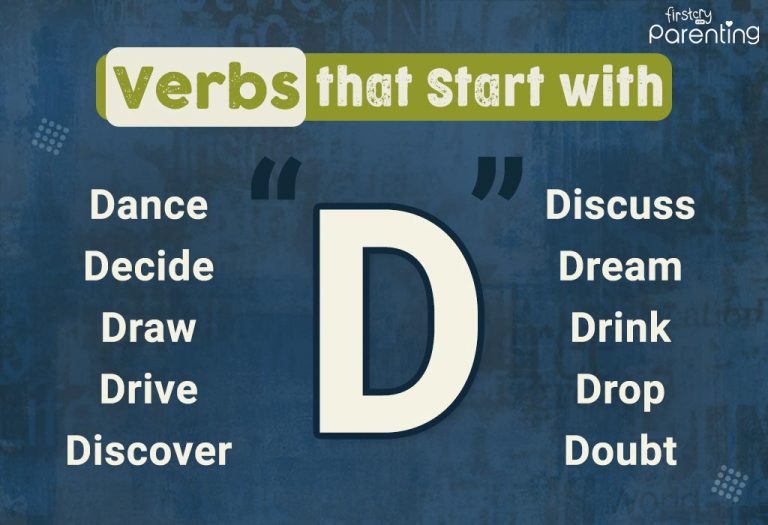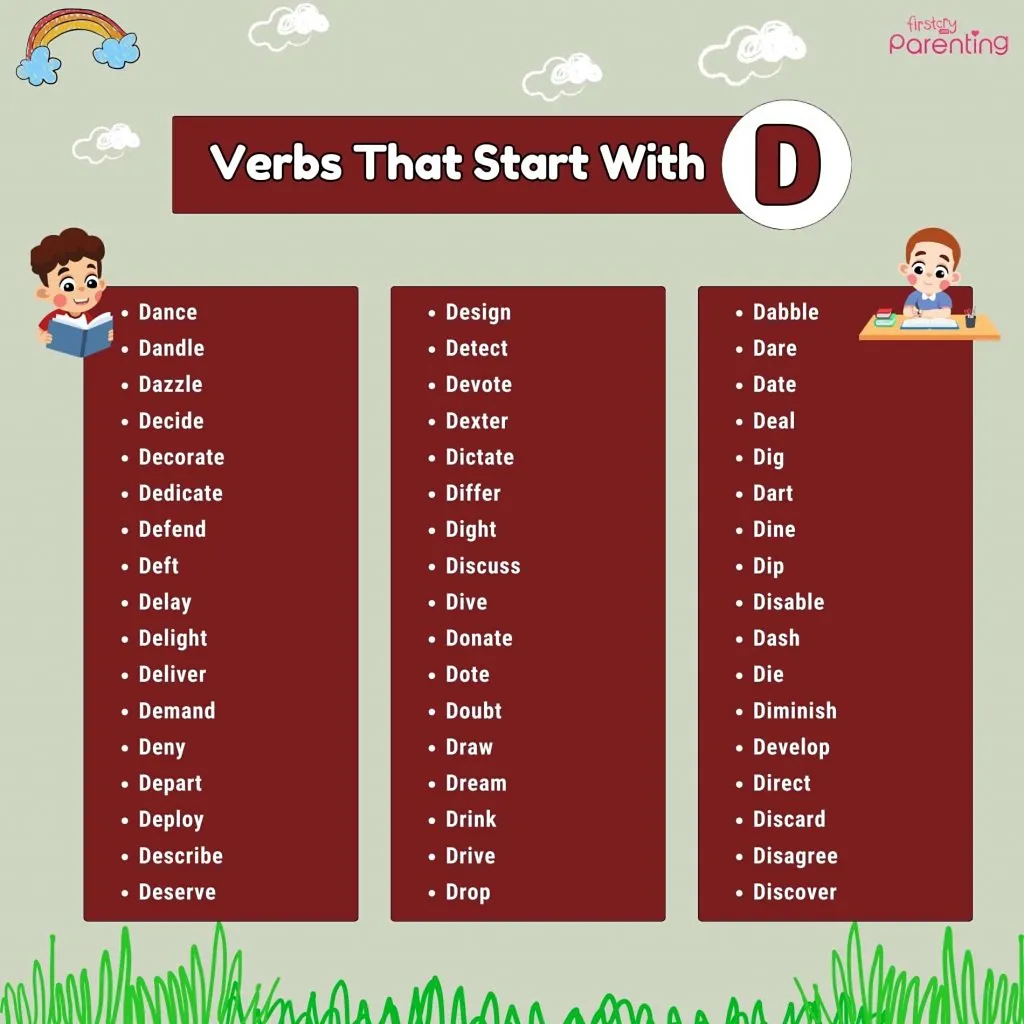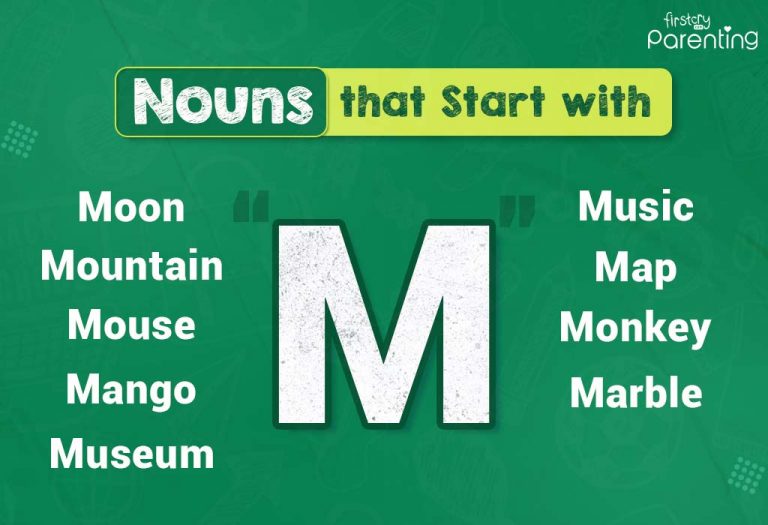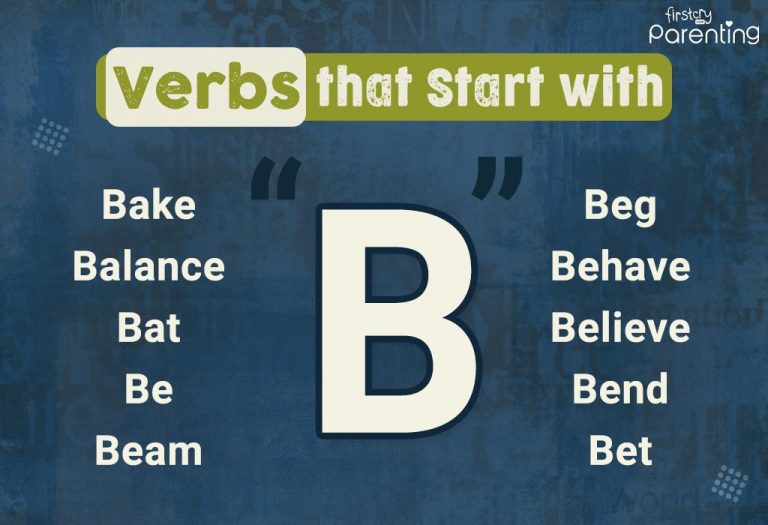Verbs That Start With D in English (With Meanings & Examples)
Embarking on expanding our vocabulary, especially for the younger learners, is akin to opening a treasure chest full of linguistic gems. Regarding English language learning, verbs are the action-packed heroes of any sentence, bringing life and movement to our narratives. Today, we delve into the delightful world of verbs that start with the letter ‘D.’ This exploration is not just an academic exercise but a fun and engaging way to introduce some fascinating ‘D’ verbs, making vocabulary for kids an exciting experience. By focusing on “verbs that start with D for preschoolers and kids,” we aim to lay a foundational stone in their linguistic development. These verbs are more than just words; they are tools that enable our little ones to express actions, emotions, and states of being in vibrant and vivid ways. So, let’s dive into this adventure, discovering verbs that will enrich the conversations and stories of our young learners, making their journey into the world of English both enjoyable and educational.
What Are the Verbs Beginning With D?
Verbs starting with D encompass a wide array of actions, from the everyday activities we engage into the emotions we feel and the states of being we experience. These “verbs with D” are fundamental components of the English language, offering us the vocabulary needed to describe, in detail, the dynamism of our world. Whether it’s “dancing” to express joy, “deciding” on a course of action, or “drawing” to capture the beauty around us, each verb beginning with D adds a layer of depth and precision to our communication.
Common Verbs Starting With D
Diving into the alphabet, we encounter a myriad of English verbs, starting with D, that are essential for daily communication and creative expression. These verbs allow us to articulate actions, processes, and experiences with clarity and richness. These verbs are the building blocks of effective and engaging language use, from describing simple daily routines to conveying complex emotions. Let’s explore 15 common verbs that start with the letter D, understand their meanings, and see them in action through example sentences.
1. Dance
To move rhythmically to music, following a sequence of steps.
Example: She danced gracefully under the moonlit sky.
2. Decide
To choose among a range of possibilities.
Example: He finally decided to take the job offer in New York.
3. Decorate
To add things to an object or place to make it more attractive.
Example: They decorated the room with balloons and streamers for the party.
4. Delay
To make something happen at a later time than initially planned or expected.
Example: The flight was delayed due to weather.
5. Deliver
To take goods or parcels, etc., to people’s houses or places of work.
Example: The courier delivered the package early in the morning.
6. Demand
To ask for something in a way that shows that you don’t expect to be refused.
Example: The workers demanded higher wages during the strike.
7. Describe
To say or write what someone or something is like.
Example: Can you describe the person who took your bag?
8. Discover
To find information, a place, or an object, especially for the first time.
Example: The explorers discovered an ancient ruin hidden in the jungle.
9. Discuss
To talk about a subject with someone and tell each other your opinions.
Example: The team discussed the new project proposal for hours.
10. Doubt
To feel uncertain about something or think that something is not probable.
Example: She began to doubt if she had made the right decision.
11. Draw
Produce a picture by making lines and marks on paper with a pencil, pen, etc.
Example: The child drew a colourful rainbow with crayons.
12. Dream
Experience images, events, and emotions in your mind while asleep.
Example: Last night, I dreamed about flying over the mountains.
13. Drink
To take liquid into the mouth and swallow it.
Example: We drank warm tea to soothe our throats.
14. Drop
To let something fall accidentally or intentionally.
Example: He dropped his keys in the rush to leave.
15. Drive
To operate the direction and speed of a motor vehicle.
Example: She drives to work every morning.
Action Verbs That Start With D
Action verbs that start with the letter D encapsulate a vast range of activities that animate our conversations and writings with vigour and intention. These verbs are the engines of our sentences, propelling narratives forward and illuminating subjects’ actions. Speakers and writers can depict scenes and convey intentions with greater precision and dynamism by mastering these action verbs. Let’s dive into 15 action verbs beginning with D, exploring their meanings and bringing them to life with illustrative examples.
1. Decipher
To understand the meaning of something obscure.
Example: It took me a while to decipher the meaning of the ancient hieroglyphics.
2. Defend
To protect someone or something from harm.
Example: The soldiers defended the city against the invaders.
3. Delineate
To describe or portray (something) precisely.
Example: The report delineates the steps needed to improve efficiency in the workplace.
4. Demolish
To destroy a building, structure, or other physical entity.
Example: The old factory was demolished for a new park.
5. Deny
To state that something declared or believed to be true is not valid.
Example: She denied all the accusations made against her.
6. Depart
To leave, especially to start a journey to another place.
Example: The train departed the station at dawn.
7. Deploy
To move (troops or equipment) into position for military action.
Example: The general deployed his forces strategically across the region.
8. Design
To create a plan or drawing to show the look and function of a building, garment, or other objects before it is made.
Example: She designed a beautiful evening gown for the event.
9. Detect
To identify the presence or existence of.
Example: The detective detected fingerprints at the crime scene.
10. Devote
To give all or a large part of one’s time or resources to (a person or activity).
Example: He devoted his life to scientific research.
11. Dictate
To say or read aloud words to be typed, written down, or recorded on tape.
Example: The author dictated the last chapter of his novel to his assistant.
12. Differ
To be unlike or distinct in nature, form, or characteristics.
Example: The twins look alike but differ significantly in personality.
13. Direct
To control or be in charge of an activity, organisation, or people.
Example: She directed the school play with great enthusiasm.
14. Disarm
To take weapons away from someone, give up weapons, or end suspicions and hostility.
Example: The police managed to disarm the suspect without any harm.
15. Dive
To jump head first into water with one’s arms raised over one’s head.
Example: He dived into the pool from the highest diving board.
Positive Verbs That Start With D
Positive verbs that start with D radiate with optimism and constructive energy, painting our conversations and narratives with hues of hope, encouragement, and joy. These verbs describe actions and imbue our language with positivity, uplifting the spirits of both the speaker and the listener. By incorporating these positive verbs into our vocabulary, we can convey actions that inspire, motivate, and bring about positive change. Let’s explore 15 positive verbs beginning with D, understanding their meanings and seeing them in uplifting contexts through example sentences.
1. Dandle
To move (a baby) up and down in a playful way.
Example: The mother dandled her infant in her arms, soothing him to sleep.
2. Dazzle
To impress deeply; astonish with delight.
Example: The magician’s performance dazzled the audience.
3. Dedicate
To devote (time or oneself) to a particular task or purpose.
Example: He dedicated his free time to volunteering at the local shelter.
4. Deft
To be quick in one’s movement or actions.
Example: The chef deftly chopped the vegetables with precision.
5. Delight
To take great pleasure in.
Example: She delights in walking through the countryside.
6. Demonstrate
To show the existence or truth of (something) by giving proof or evidence.
Example: The experiment demonstrated the basic principles of chemistry.
7. Deserve
To do something or show qualities worthy of (punishment or reward).
Example: He deserves praise for his honesty.
8. Develop
To grow and become more mature or advanced.
Example: She has developed a great passion for painting.
9. Dexter
To be skilful in the use of one’s hand or body.
Example: The juggler’s dexterity with the balls amazed the crowd.
10. Dight
To dress or adorn.
Example: She dight herself in the finest attire for the ball.
11. Dignify
To confer honour or dignity upon; to elevate rank, status, or importance.
Example: The award dignified her efforts in community service.
12. Diversify
To make or become more diverse or varied.
Example: He decided to diversify his investment portfolio.
13. Donate
To give money or goods to help a person or organisation.
Example: They decided to donate to the children’s charity every month.
14. Dote
To be highly fond of.
Example: She dotes on her grandchildren, showering them affectionately.
15. Delectate
To delight or greatly please.
Example: The exquisite flavours of the dish delectated the diner’s palate.
More Verbs That Begin With D
In addition to the diverse and vibrant verbs we’ve explored so far, the English language is rich with a plethora of other verbs that begin with the letter D. These verbs further enrich our vocabulary, enabling us to describe a wide range of actions, feelings, and experiences with precision and colour. Here, we present 50 more verbs that start with D, expanding our linguistic arsenal and offering even more ways to express ourselves in daily conversation, writing, and storytelling. This comprehensive list serves as a resource for learners and enthusiasts alike, aiming to broaden understanding and encourage the exploration of the English language’s depth.
| Verb | ||
| Damage | Deter | Diminish |
| Dabble | Develop | Dine |
| Dare | Daven | Dip |
| Darken | Diagnose | Direct |
| Dart | Dictate | Disable |
| Dash | Die | Disagree |
| Date | Dig | Disappear |
| Daunt | Digest | Disapprove |
| Dawdle | Dilate | Disarm |
| Deal | Dilute | Discard |
| Debate | Dree | Discern |
| Debut | Dimple | Discharge |
| Darg | Dwaal | Disclose |
| Declare | Disband | Discomfit |
| Decline | Discern | Disconnect |
| Dirl | Disclose | Drumble |
| Decrease | Discolour | |
FAQs
1. What is a common verb that starts with D used to describe the act of reducing something in size or quantity?
The verb “decrease” is commonly used to describe reducing something in size or quantity.
For example, The company aimed to decrease expenses by 10% this year.
2. Can you give an example of a verb starting with D that signifies making a decision among options?
The verb “decide” signifies deciding between options.
For example, After much deliberation, she decided to take the job offer in New York.
Also, Discover the Verbs That Start With A to Z
| Appreciate | Nurture |
| Bask | Overcome |
| Create | Prosper |
| Dabble | Quicken |
| Excel | Radiate |
| Flourish | Succeed |
| Grow | Thrive |
| Help | Unite |
| Innovate | Venture |
| Journey | Wonder |
| Kindle | Xeriscape |
| Learn | Yearn |
| Motivate | Zeal |
Exploring verbs that start with the letter D unveils the richness and versatility of the English language, providing learners of all ages with the tools to express actions, emotions, and states of being with vivid detail. From everyday activities to deep, reflective thoughts, these verbs enable us to share our experiences and stories in ways that connect and resonate with others. As we expand our vocabulary with these dynamic verbs, we enhance our communication skills and enrich our understanding of the world around us, one word at a time.
Also Read: Verbs That Start With A to Z
| A | B | C | D | E | F | G | H | I | J | K | L | M |
| N | O | P | Q | R | S | T | U | V | W | X | Y | Z |
Was This Article Helpful?
Parenting is a huge responsibility, for you as a caregiver, but also for us as a parenting content platform. We understand that and take our responsibility of creating credible content seriously. FirstCry Parenting articles are written and published only after extensive research using factually sound references to deliver quality content that is accurate, validated by experts, and completely reliable. To understand how we go about creating content that is credible, read our editorial policy here.














.svg)
















